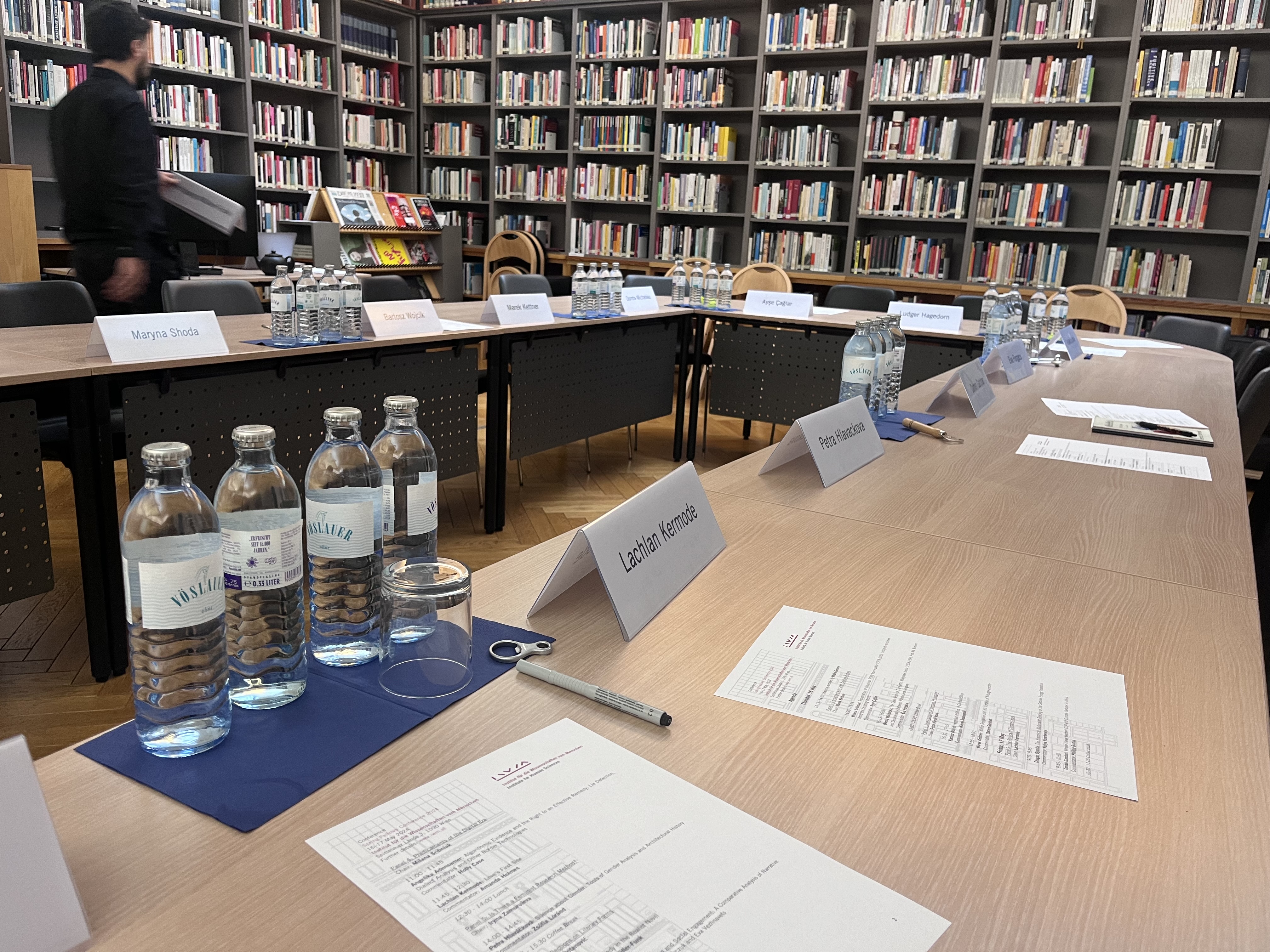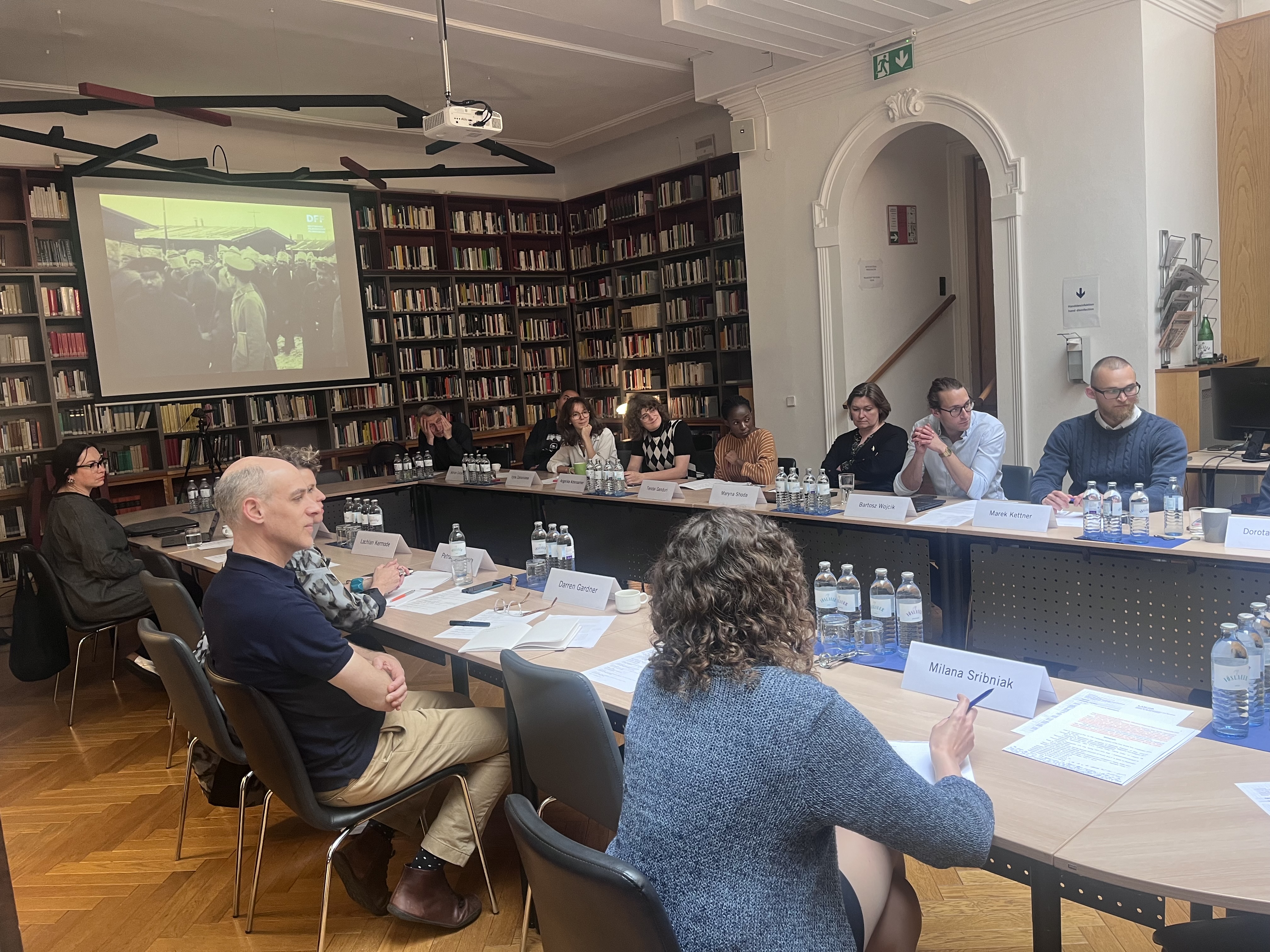
Twice a year, early-career visiting fellows convene in the IWM library to present their research to a wider audience, receive feedback, and exchange ideas. Below, participants in this year's Spring Fellows' Conference share their impressions from the event, which took place on 16–17 May 2024. In presentations centered around six themes—Encounters with 20th Century History, Investigations of German Philosophy, The Politics of Climate Crisis, Predicaments of the Digital Era, Is There a Feminist Research Method?, and Reflections on Literary Forms—, the participants had the unique opportunity to refine their research foci in a collaborative and supportive atmosphere. Members of the IWM community, including former and current permanent and visiting fellows, as well as senior academics from institutions across Vienna, acted as commentators and discussants.
Tendai Ganduri, a visiting fellow within the Digital Humanism Program, presented ongoing work on climate-related online discourse on X (formerly Twitter) in an African context, taking South Africa and Zimbabwe as case studies. “Given my bias to computational approaches towards understanding social communities, I most enjoyed the Predicaments of the Digital Era presentations,” she says. Further elaborating on her experience, she explains: “I also enjoyed the German philosophy presentations. My training has been mainly from a position of starting with the data and then getting into theory. It was quite intriguing and satisfying to experience philosophical discussions in their pure sense, especially since I am currently working on my theoretical framework. As such, the presentations opened how deep an understanding and critiquing of a theory can go and made me realize there seems to be a gap when it comes to my philosophical knowledge.”
Commenting on the pivotal role of transdisciplinary exchange for capacity building, IWM Permanent Fellow Ayşe Çağlar notes: “The composition of the Conference by fellows from different disciplines together with topic-specific expert discussants urges everyone to achieve a fine balance between cross-disciplinary and topic-specific presentation/discussion. This is a challenging but very important task, especially for early-career scholars. It forces everyone to a relatively jargon-free talk, which creates an environment of openness. I see this definitely as one of the advantages vis-a-vis topic-specific academic conferences.” She also stresses that “the presence and participation of the senior fellows (more than in former years) contributed to these discussions in an important way. In that sense, this year’s Spring Conference gave a strong message not only about the importance of the engagement of senior fellows but also the choice of discussants in the success of these events.”

The variegated nature of the intellectual encounters and the feedback they received are also what stood out to the conference organizers, visiting fellows Petra Hlaváčková and Bartosz Wójcik: “Such a conference certainly provides an excellent opportunity to confront one's research with a wider audience, both young researchers and experienced scientists,” Wójcik says, adding that “the amount of discussion time after each paper was also longer than at usual conferences, which certainly allowed for better feedback.”
“I very much appreciate the friendly and supportive energy we experienced, as well as the time dedicated to discussing the presentations. Even though each one had a completely different topic, everything flowed smoothly into each other,” Hlaváčková concurs.
Reflecting on their role as conference organizers, however, they also underline the difficulties attached to coordinating with presenters, discussants, and other members of staff involved: “The most difficult part about organizing the conference was balancing the needs of everyone involved. Due to the large number of participants, we opted for a two-day conference. We were also surprised by the amount of extra work that had to be done to organize and schedule such an event, above all because of the participation of commentators.” Nonetheless, they underline the positive impact the event had on their research and that of other fellows: “Overall, I consider the conference a great success, and I am glad that I was able to help organize it,” Wójcik concludes.
The next Fellows’ Conference will take place in Autumn 2024.
